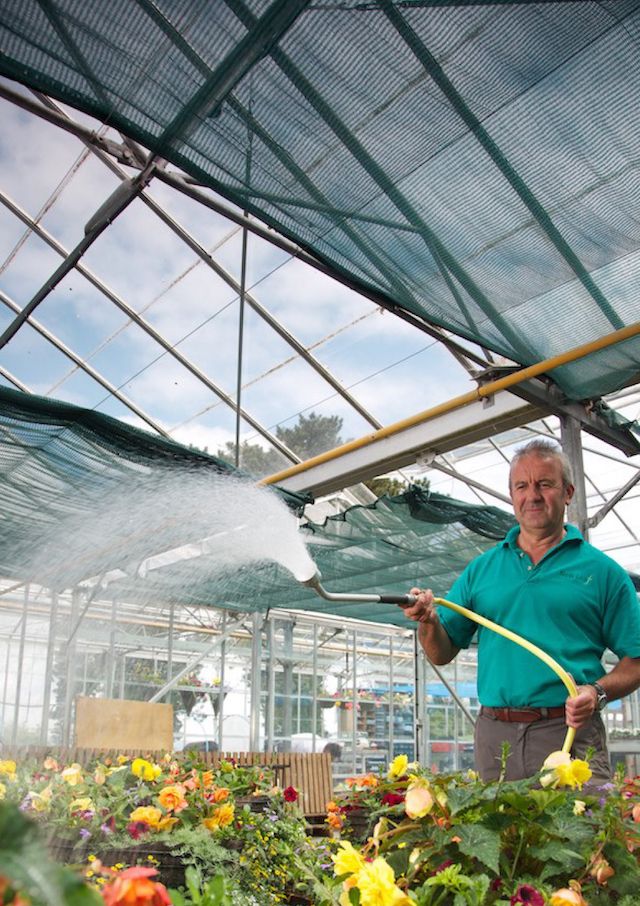1,000 people living with mental ill health have received help and support back to employment, as well as generating funds to reinvest back into the NHS
The NHS Long Term Plan, revealed earlier this year, sets out how stable employment is a major factor in maintaining good mental health - and is an important outcome for recovery for people with a mental health problem. Yet, for people being supported by secondary mental health services, there is a 65% employment gap compared with the general population.
A unique mental health scheme is now looking to combat this. The New Leaf project in Exeter, part of Devon Partnership NHS Trust, has helped more than 1,000 people to develop employment skills as part of their therapy. While taking part in the programme, people can take part in various meaningful and productive activities, offering participants an opportunity to test themselves outside of a medical environment.
The project strives to help develop themselves as a “person not a patient” within different businesses, supporting their return to work. Any profit generated is reinvested back into the NHS to help sustain the programme.
Mark Rattenbury, Vocational Manager at New Leaf, said:
“We aim to provide people with a realistic, non-pressured and supportive work environment. Here people can grow in confidence through their work in a supportive workplace, gain new skills and build self-confidence through their recovery. It’s a personal journey through which people can discover a renewed sense of self.
“People spend time here who would eventually like to join a mainstream workforce - and making something or providing a service that is valued by others can create a huge sense of achievement and self-worth when recovering from a period of mental ill health.”
New Leaf’s furthest export shipped clothes overseas to South America via its online Clothing Works business, while its nursery produces plants and flowers year-round for commercial customers and the general public - who can visit the 35-acre site six days a week.
Those who have been supported by programmes at New Leaf talk passionately about how much it has meant to them to start to engage again, to be part of a team, to learn new skills, to feel like you are making a contribution and to build confidence and self-esteem.
One service user said, “For the first time in my life, I believe I am capable of getting a part-time job. Without New Leaf I would still be sleeping until midday and hiding from the world, now I feel like I am becoming part of it.”
New Leaf initiatives include:
- Every year, the project sells several hundred bottles of its own apple juice from trees that were planted as part of the NHS Forest scheme.
- People attending New Leaf can become involved in the garden centre and Wood Works project that makes a broad range of items from bespoke furniture to houses for birds and bugs.
- The catering business provides homemade cakes, meals and refreshments for people on-site and in the local area. New Leaf also has links with local supermarket food share schemes and gives something back to the community through the local food bank - the homemade style cookies are particularly popular.
- Commercial printing at New Leaf Print and online clothing sales through Clothing Works provide diversity in work placements. There is lots of personalised printing from leaflets to tee shirts. The School of Occupational Therapy has been a longstanding client for their bespoke uniforms.
People who wish to attend can self-refer and apply for a place, often stay for up to a year and then phase back into the general workforce after picking-up a wide range of different skills - including retail business and administrative skills in addition to those such as woodworking, printing and horticulture.
NHS England is already on track deliver to support up to 20,000 people with severe mental illness to find and retain employment by 2020/21. As part of patients’ care and support package, employment specialists in NHS Individual Placement and Support (IPS) services, offer advice about finding a job, help them to prepare for an interview and can speak with potential employers about how someone’s condition can be managed so that they can work effectively whilst staying in good health.
The trained specialists also improve the health of people with severe mental illness, reducing the need for urgent hospital admissions and GP appointments. These schemes have also been shown to be cost-effective - research shows that type of support can free up as much as £6,000 per patient, which can be invested in other frontline care.

Across the NHS, Integrated Care Systems (ICS) and Sustainability and Transformation Partnerships (STP) are seeing the NHS and local government join forces to improve the lives of people by joining up care and support across general practices, community services, hospitals, councils, voluntary and community organisations and charities.
The New Leaf scheme, covering Exeter and East and mid-Devon in the Devon STP, is an example of innovative working that is helping to improve people’s health and benefit wider society.
Claire Murdoch, NHS England’s National Clinical Director for Mental Health, said: “As we implement the Long Term Plan for the NHS, it is common sense schemes like this which will get the best care for people, innovating and making the best use of resources.
“The NHS in England is already helping people with mental ill health to find and keep a job, while New Leaf has shown how the public sector can make a saleable product, help people recover, sustain the NHS and contribute to the wider determinants of health and the economy.”


Comments